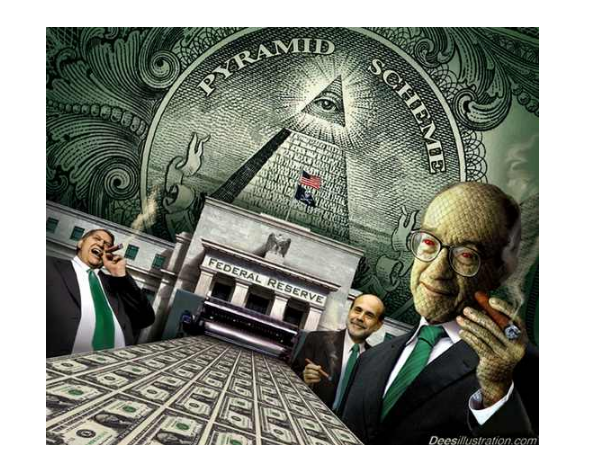[captionpix imgsrc=”https://pvnn.org/wp-content/uploads/2015/06/Screen-Shot-2015-06-17-at-6.44.07-PM.png” captiontext=”Photo courtesy of therundownlive.com”]
Recently California has been experiencing minimum wage increases in cities like San Francisco and Los Angeles. Indeed, the minimum wage has increased tremendously in a span of fifty years, from one dollar in 1956 to fifteen dollars today. While the minimum wage hike seems progressive, the money value would suggest otherwise. The minimum wage, from the time frame of 1963 to1966, was only $1.25. However, payments were given in the form of five silver quarters, with a melt value of roughly twenty-five dollars today. Perhaps the real issue is not the minimum wage, but rather the current monetary system in America. [ref] Gary Gibson, “Don’t Bother Raising The Minimum Wage,” The Dollar Vigilante, March 26, 2013, accessed June 11, 2015, https://www.dollarvigilante.com/blog/2013/03/26/dont-bother-raising-the-minimum-wage.html [/ref] Currently, the Federal Reserve, or simply the “Fed,” controls the supply of money through targeting the inflation or interest rate. The institution was enacted when President Woodrow Wilson signed on December 23, 1913 to provide America with a “more stable and secure monetary and financial system.”[ref]“Learn about How the Federal Reserve Was Started, What It Does, and Why It Matters Today,” Federal Reserve History, accessed June 11, 2015, http://www.federalreservehistory.org/Purpose. [/ref] Yet many of the Fed’s actions have been the root of financial distress on the country. The “Fed-induced bubbles,” for instance, are responsible for the economic crash in 2008. [ref]David Howden, “The Fed at One Hundred: A Critical View on the Federal Reserve System,” 2014.[/ref] In light of these difficulties, the Vendetta focuses on how to exactly stabilize the economy while using current monetary system controlled by the Federal Reserve.
On one hand, there have been proposals for the U.S. to revert back to the gold standard, where dollars would be backed by actual gold. The advantage of this system means that money would not be able to fluctuate. Moreover, the Fed would not be able to simply print out money, and lower the worth of the dollar. However, top economists have shown their hesitation to support this type of system. [ref]Matthew O’Brien, “Why the Gold Standard Is the World’s Worst Economic Idea, in 2 Charts,” The Atlantic, August 26, 2012, accessed June 11, 2015, http://www.theatlantic.com/business/archive/2012/08/why-the-gold-standard-is-the-worlds-worst-economic-idea-in-2-charts/261552[/ref] Even though the gold standard might mean long term economic stabilization in the long run it could prove disastrous in the short term.
Another proposed solution focuses on auditing the Federal Reserve. In 2009 Ron Paul finally gathered enough bipartisanship votes, from the House of Representatives, to expand the government’s power to audit the Fed. The audit revealed that sixteen trillion dollars had been secretly given out to U.S. banks, corporations, and even foreign banks ranging from France to Scotland. From December 2007 to June 2010, the Fed secretly bailed out several of the world’s banks, corporations, and governments. While the Fed referred to these bailouts as an “all-inclusive loan program,” not much of the money had been returned. [ref]Josley Wales, “First Audit Results in the Federal Reserve’s Nearly 100 Year History Were Posted Today, They Are Startling!” Before It’s News, September 1, 2012, accessed June 10, 2015, http://beforeitsnews.com/economy/2012/09/first-audit-in-the-federal-reserves-nearly-100-year-history-were-posted-today-the-results-are-startling-2449770.html[/ref]
Although frequent government audits of the Federal Reserve may seem reasonable, it is not without its risks. Opponents of such bills to audit the Fed believe it is not necessary, and only serve to give the government more power over monetary policy.[ref]Ernie Patrikis, “No, Don’t ‘Audit the Fed.,’” The Wall Street Journal, March 17, 2015, accessed June 11, 2015, http://www.wsj.com/articles/ernie-patrikis-no-dont-audit-the-fed-1426633745[/ref] In fact, many opponents argue that the Federal Reserve is already audited regularly. Yet currents audits are simply not enough, with the frequency and scope of those audits based on specific risk factors, depending on each Federal Reserve Banks’ operation. Moreover, the Fed’s chair and various governors hold periodic meetings to discuss a number of concerns about monetary policy. Yet there is a problem in assuming that this alone creates enough transparency between the Fed and the government. If those present at the meeting are unaware of current activities, such as trillions of dollars going into foreign nations, then they would be unable to know what questions to ask.
Because the Federal Reserve has acted independently without a full audit in about one hundred years, it has given the Fed too much power. Economists, like Milton Friedman, accused the Federal Reserve’s monetary policy for playing a large part in the Great Depression. Ben Bernanke, chairman of the Board of Governors of the Federal Reserve, in 2002 stated, “I would like to say to Milton and Anna: Regarding the Great Depression, you’re right. We did it. We’re very sorry.”[ref] Ivan Pongracic, “The Great Depression According to Milton Friedman,” The Freeman Foundation for Economic Education, September 1, 2007, accessed June 11, 2015, http://fee.org/freeman/detail/the-great-depression-according-to-milton-friedman [/ref] In another instance, during the 2001 recession, former chairman of the Federal Reserve Alan Greespan aggressively” expanded the U.S. money supply. Along with the expansion, the lowered the federal funds interest rate from 6.25 percent, to 1.75 percent, to eventually 1 percent. The continued drop in interest even reached the negatives.[ref]Lawrence White, “Federal Reserve Policy and the Housing Bubble,” CATO Journal 29, no. 1 (2009): 115-25, accessed June 16, 2015, http://object.cato.org/sites/cato.org/files/serials/files/cato-journal/2009/1/cj29n1-9.pdf.[/ref]
Full audits of the Federal Reserve should be done on a regular basis so as not to allow uncontrolled spending and over printing of American money. With the economy continuing to grow weaker, it’s in America’s best interest to oversee monetary spending and regulate activities of the Federal Reserve. This ensures transparency between the Fed, government, and the American people, and helps fix economic issues at its root.
Take Action:
This petition is a one-click petition that will be immediately delivered to the Senators to support the S 202 bill to Audit the Fed.
This petition is set up on behalf of the Tea Party. Even if you don’t agree with the actions or stances of the Tea Party, you can comment below to support a full audit of the fed.




